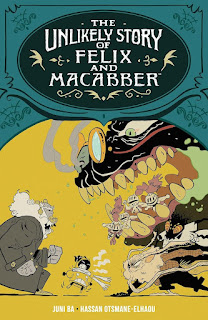Well a real beginning. Nothing ever comes out of only one place, and nothing ever ends that cleanly, either.
But Red Harvest, Dashiell Hammett's first novel from 1929, is as good a signpost for "noir starts here" as any other, and better than most.
Hammett had been writing short stories and novellas for the pulps for seven years at that point, and there were hardboiled writers before him - there had to be a market to sell into - but novels feel more impressive than a collection of stories, no matter how much we try to be dispassionate about it.
This is the first of two novels about Hammett's series character The Continental Op, a nameless functionary of that nationwide detective agency - a fictionalization of the Pinkertons, mostly - who had starred in about two dozen Hammett stories before this. He's smart but not fancy, a man with - as would be said later - a particular set of skills, a man who is good at taking things apart to see what happens.
In Red Harvest, he takes apart an entire town. Personville is a corrupt town, a small mining city somewhere in the American West, under the thumb of one aging industrialist, Elihu Willsson, and the gangsters he brought in to crush a strike a few years back. The Op was hired by Willsson's son Donald, supposedly honest and given the town's one newspaper to run - in a crusading, clean-up-the-town rabble-rousing style that was not specifically against his father's corruption but would tend to conflict with the old man's interests.
The Op hits town, and plans to meet Donald that night. But Donald is murdered before that meeting can happen. And the Op, for his own reasons, more-or-less blackmails Elihu into signing a contract to "clean up the town." The rest of the novel is the Op - not as systematically or coldly or deliberately as one might expect - pitting the major gangsters of the town against each other, fomenting chaos and getting them to knock each other off (along with plenty of others) as quickly as possible.
You see, the Op's job is generally to follow the law, to support established authority - even if that is corrupt, maybe especially if that is corrupt, following the Pinkerton model - and not to crusade to get hoodlums to murder each other. He's quite clear that his superiors, particularly "the Old Man" in San Francisco, would shut down his operations very quickly if they knew what he was actually doing.
So he has a limited amount of time, and only a quick knowledge of the major players, and an entrenched power structure used to crushing any opposition. The Op exploits small cracks, drops hints, plants rumors, points hotheads at each other, and generally just acts as an agent of random chaos, trying to stir up as much trouble as quickly as he can and trusting to his skills and to blind luck to come out the other side of it. He's aided by the fact that the gangsters tend to trust him - why would they think his purpose is to destroy all their operations? - and so he gets to meet with many of them repeatedly, to plant ideas and get them thinking that they're each about to be betrayed by the others.
It all works: the Op does "clean up the town," in the sense that there's a bloodbath (about two dozen murders of specific named characters, plus a certain number of random mooks and palookas) and all of the existing gang leaders are dead when he finally leaves town.
We all judge success in our own ways: he did what he set out to do.
Red Harvest is still cleanly readable, and the Op's psychology modern enough that a current reader will be in sympathy with him, from the intention to clean up the town to his worries that he's getting too bloodthirsty along the way. It's a short book with propulsive energy: it may be a classic of its type but it has none of the stuffiness we associate with "classic."
(Note: as I implied up top, I read this in a Library of America omnibus, the Hammett Complete Novels. If you're going to read more than one Hammett book - and why not? - I'd recommend it.)






















